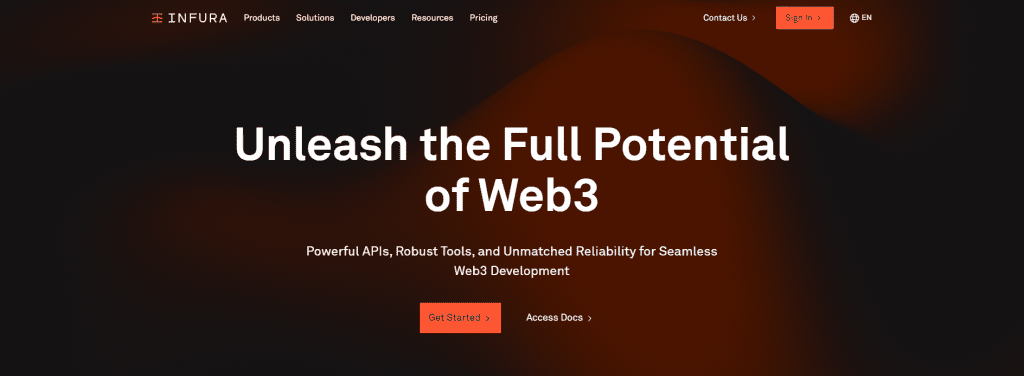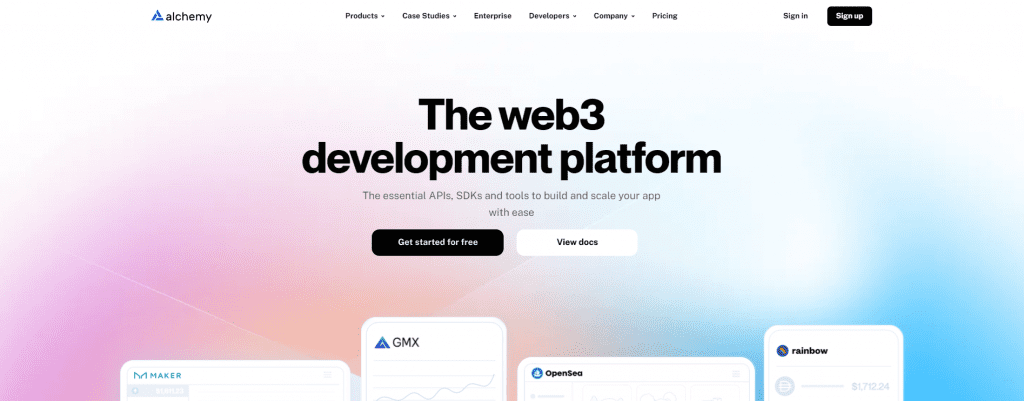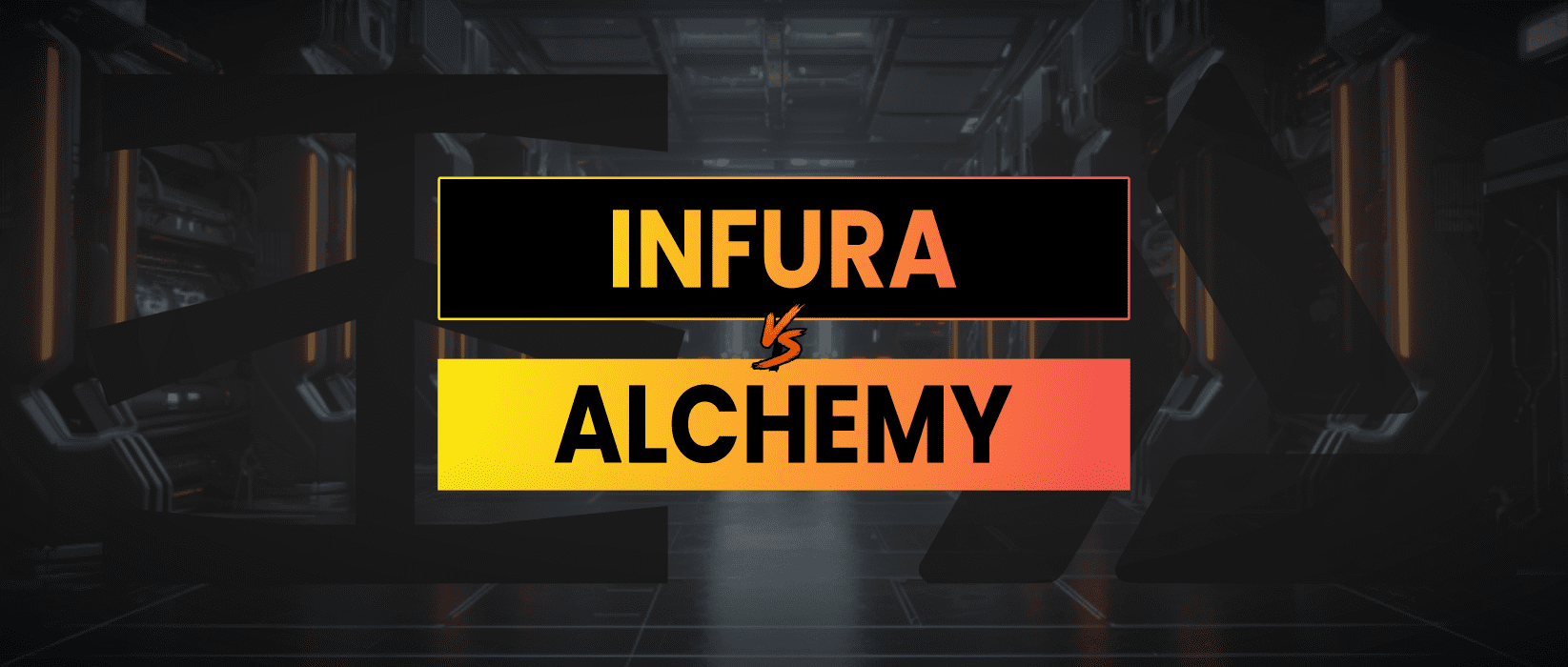Most users connect to blockchains using RPC node services. This is sometimes taken care of in the background, for example Metamask uses Infura nodes to send and receive transactions.
Web3 developers use custom RPC nodes for their deployment scripts and transactions. Operating the nodes requires a reliable infrastructure service, and two of the most popular choices are Infura and Alchemy. Both aid developers by providing access to Ethereum and other blockchain networks without the need for developers to maintain their own node.
Infura

Infura is the most widely adopted RPC node service, built by ConsenSys, a leading blockchain technology company. It provides access to Ethereum, IPFS and other networks, removing the need to install, configure, and operate your own nodes. It is a vital element in a large number of decentralized applications (dApps). Infura also offers features like scalable APIs, real-time analytics and a user-friendly dashboard.
One of the primary selling points of Infura is its robust architecture. This makes it highly scalable, capable of processing a high number of requests without any congestion. Infura offers clear documentation and tutorials, facilitating a smooth learning curve for both seasoned and novice developers.
Infura does have its shortcomings, it can become expensive and you need to supply credit card details just to get an API key to connect to Optimism and Arbitrum (even on a free plan).

Infura Endpoints
- https://mainnet.infura.io/v3/${apiKey}
- https://goerli.infura.io/v3/${apiKey}
- https://sepolia.infura.io/v3/${apiKey}
Alchemy

On the other side of the fence is Alchemy, an infrastructure platform that provides reliable blockchain nodes for Ethereum and all the other major blockchain networks.
Alchemy also provide an Enhanced API which offers decoded data making it easier for devs to do complex lookups like finding all the NFT’s owned by a single user without doing 10,000 requests.

Alchemy’s pricing is based on compute units and the growth plan is expandable at a cost of $1.20/Million CU for additional usage. A simple eth_getBalance query will cost 19 compute units where as a more complex getFloorPrice Enhanced API query will cost 100.
Alchemy Endpoints
- https://eth-mainnet.alchemyapi.io/v2/${apiKey}
- https://eth-goerli.alchemyapi.io/v2/${apiKey}
- https://eth-sepolia.alchemyapi.io/v2/${apiKey}
Conclusion
The choice between Infura and Alchemy ultimately boils down to specific project requirements, budget, and the developers’ preference.
I use Alchemy for the most part because it supports all the chains I’ve ever needed it to and I’ve never come close to the hitting the limits where I need to upgrade.
If Alchemy and Infura don’t support a specific chain you are working with you will likely find that the project itself will provide a public RPC node to use.
For most blockchain developers either product will suit the purpose but I would recommend Alchemy because it offers a more complete free usage tier and I have found it to be a reliable, headache free solution for connecting up web3 frontends and deploying contracts.


